- Home
- Heather Graham
Glory Page 3
Glory Read online
Page 3
He was right. As one of the few militia units left to attempt guarding the state, they had started off in Florida colors of their own making. Time had worn away any attempt at uniforms. Mostly in the heat of summer, they wore cotton shirts and breeches, threadbare at that, and whatever footwear they could get their hands on.
“We’ll move in. I’ll talk when necessary,” Julian told them. He nudged his horse forward.
They rode down the overgrown trail to the house. There, Julian dismounted, pulling the Colt he carried before hefting Paddy’s unconscious body from the haunches of his horse to his shoulder. He motioned for Jim, the Henlys, and the Andersons to circle around the back of the house and for the other men to follow him. Carefully, he walked up the steps to the broad porch. A swing sat upon it, caught by the breeze, and it was easy to imagine better times, when moonlight had played down upon the nearby magnolias, casting a glow upon the dripping moss while soft breezes whispered by. The swing still moved gently in the breeze, but the foliage was overgrown and the columns were linked by spiderwebs.
He strode across the porch to the door, anxious to work on Paddy’s injured thigh. To his surprise, the double mahogany doors at the entrance were locked. He backed away, then threw his shoulder against the left door. The wood shuddered. He kicked the door, and the wood splintered at the lock. A second kick opened the door, and he stepped into the entry.
To his astonishment, candles gleamed from polished tables in an elegant breezeway.
Like many an old plantation home, the house was symmetrical, with wings expanding off a large central main hall. As Julian stepped in, his Colt at the ready, Paddy over his shoulder, he came to a dead halt, surveying the place warily. The hardwood floor gleamed. Richly upholstered chairs were angled against the wall, along with a hall tree and occasional tables and two tall cherrywood hutches, all polished to a fine gleam. An Oriental runner lay in the center of the breezeway flooring, the midnight blue within the design matched by the carpeting up the staircase that led to the second floor.
A woman stood upon the stairway.
She was dressed in black—mourning black. She stood so still, unruffled and elegant, that she might have been a witch, a very striking witch. She was tall, very straight, dignified—hauntingly beautiful. Despite the somber apparel her lithe—yet richly curved figure—seemed all the more enhanced. Her hair, wrapped in a chignon at her nape, was an even deeper shade than the ebony of her gown, shining almost blue-black in the glow of candlelight and kerosene lamps. Her complexion was pure ivory; her features were classic. She stared down at him with bright vivid green eyes.
How long they stared he did not know. He forgot time and place, and even the two-hundred pound man he carried over his shoulder. When he spoke at last, he managed only an acknowledgment that she was there.
“Madam.”
“Sir,” she said, and her lip curled with cool contempt as she evenly suggested, “you might have knocked.”
He had been raised in polite Southern society, and though he had spent several years under terrible circumstances, he felt his cheeks redden beneath her disdainful scrutiny.
“Sir?”
He heard Liam behind him, and he gave himself a mental shake, breaking the strange spell she had cast upon him. No spell, he told himself. He had simply been taken by surprise.
“My apologies, madam. You will excuse us. My—my friend here needs care, and we thought your place empty.”
She arched a brow, looking at the human burden he carried. For a moment some dark emotion touched her eyes and passed through her face, but it was a fleeting shadow and it was quickly gone.
“My house is not empty, as you can see.”
“Then, madam, we need your hospitality.”
“For a drunkard?” she inquired quietly.
Julian gritted his teeth together. “No, madam, he is injured.” He lost patience. “Ma’am, I’m afraid you can offer hospitality, or we simply must take it.”
“And what else will you take?” she asked wryly. “The cattle are gone, as are the cotton and other livestock. And the silver.”
“Ma’am!” Kyle Waverly stepped into the hallway to Julian’s side. “We’re on our way to join up at St. Augustine. Paddy here shot himself cleaning his rifle. Dumber than hell, but he’s a dear fellow, I swear it, and Julian—he’s a doctor—is just trying to save his life. Please.”
“Rhiannon! It’s all right—they are Yanks!” someone whispered.
Julian looked upward along the stairway. At the second-floor landing stood a second woman, this one a few years younger than their elegant hostess, perhaps sixteen or so to Rhiannon’s twenty ... plus? Yes, he judged, their unwilling hostess had to be in her early twenties. She was composed, regal, and serene.
Rhiannon. Something stirred in Julian’s memory from ancient tales of Britain. Rhiannon ... it was Welsh in origin, a masculine name when given to several princes of the old realm, feminine when it was given to a beautiful sea witch from folklore. It somehow seemed fitting for their unwilling hostess.
“My friend is bleeding on your very handsome runner, ma’am,” he said pointedly. “I need somewhere to tend to him.”
“There’s a downstairs bedroom; you needn’t bring him up,” the woman, Rhiannon, said, and at last she moved, gliding down the steps with smooth elegance.
She noted Kyle, River Montdale, and Liam all standing behind Julian and his burden and nodded to them in acknowledgment. Then she swept by Julian, heading down the hallway and leaving behind a soft, subtle scent of roses. He followed her, glancing back to see that the girl who had stood on the second floor was hurrying along behind them as well. “Thank God you’re Yanks!” she said anxiously. “My Lord, I’ve been so frightened. There are so many desperate folk here, you know. People who think Richard deserved to die, fighting for the North, when he was just doing what he saw as right. And have you heard what some of the Reb soldiers do to Yank women when they find them alone? Why, sirs, it’s just terrifying!”
“Rachel!” the older woman snapped. She spun around and stared at the young girl, her eyes as sharp as saber points.
“But, Rhiannon—”
“Rachel, go to the kitchen and start some water boiling,” Rhiannon said firmly. She met Julian’s eyes, aware that he was watching her.
“I’ll get the water. And don’t worry, Rhiannon knows more about medicine than most doctors. Oh, sorry, I don’t mean to offend you, sir; I’m certain you’re a very good doctor, but—”
She broke off. Rhiannon was staring at her again, and she exhaled guiltily. “I’ll get the water.”
Rhiannon took a lamp from a table and opened the last door on the right side of the great hallway. They entered a sparsely furnished but impeccably clean bedroom. The bed was covered with a quilt, which she quickly stripped away, baring clean white sheets.
Julian slid Paddy from his shoulder to the bed and tossed off his plumed hat. Paddy remained unconscious, and Julian quickly assured himself that his friend retained breath and a pulse.
“Liam, my bag,” he called. “And quickly, scissors, we’ve got to get—”
He started to turn, ready for one of the men to assist. But she was there, scissors in her hand, ready to cut away the makeshift bandaging Julian had managed before they had been forced to flee.
He didn’t know what her training was or where her knowledge and experience came from, but the younger girl, Rachel, was right—she was certainly competent, more so than some doctors Julian had had the ill fortune to work with. She didn’t blink or blanch at the horrible sight of poor Paddy’s ravaged leg; she quickly cut away the bandaging and the remnants of Paddy’s pants. Before she was done, Rachel returned with steaming water, excusing herself as she made her way through the rest of the men who milled awkwardly in the doorway.
“Men, see to the horses and our situation here,” Julian said, watching the top of Rhiannon’s dark head as she finished her task. “How many others are in the house—or on the propert
y?” he asked her.
She looked up at him, her green eyes unfathomable. “Mammy Nor and Angus, that’s all,” she said.
“And they are ... ?”
“Our servants,” she said simply, looking back to Paddy.
Servants, Julian thought. She didn’t say darkees, Negroes, or slaves. Servants. It was definitely a Yank household. He should know. Florida was a sadly split state. The third to secede from the Union, she was still peopled by many who were loyal to the old government. His father was one; his brother was another. They had many Negroes working at Cimarron, his family’s plantation outside Tampa. But they weren’t slaves; they too were servants. Free men and women, paid for their labor. His father had always been adamantly antislavery. Julian didn’t believe in the institution of slavery himself—it didn’t seem possible that a human being, with a soul, could belong to another—but he was also aware that an entire economy was based upon slave labor. Of course, the matter of economy didn’t make the institution of slavery right, but suddenly freeing men and women to starve didn’t seem the right answer either.
“Sir!” Liam said, returning, setting Julian’s surgical bag on the bedside table.
“Thank you,” he murmured, opening his bag, then turning to tend to the washing of Paddy’s wound.
But Rhiannon was busy already. “Soldier,” she told Liam, “take his shoes and hose. I’ll tend to the cleaning.”
Liam did as told, and with the younger girl at her side, Rhiannon began cleaning the wound. Julian hadn’t managed to get the bullet as yet; he hadn’t dared withdraw the Minié ball without first being certain he wouldn’t start a hemorrhage. Better to leave it than cause Paddy to bleed to death as they escaped.
But now ...
He turned with his forceps to see that she had bathed the wound and doused it liberally with the contents of a bottle of whiskey. He stared at her, arching a brow. “Keeps infections at bay,” she said.
“I know,” he murmured wryly.
She was staring at his medical bag, seeing how devoid it was of critical supplies.
But he had sutures—made of horse hair these days but very serviceable nonetheless. And his bullet extractors were fine—a gift from his father when he had graduated from medical school. He found his best position and carefully felt the wound with his fingers, seeking the blood vessels to assure himself that removing the bullet wouldn’t cause greater harm. He found where the bullet lay.
She was at his side, soaking up blood the moment it obscured his field of vision.
He found the bullet. Within a matter of minutes he had it removed, thankfully without damaging any major blood vessels. Paddy was a fierce old coot of an Irishman—he’d not want to lose a leg.
Julian threaded his surgical needle, noting while he did so that she was using her whiskey to cleanse the wound once again. He set to his task of sewing torn flesh. As he did so, Paddy began to come to, swearing and moaning, even those sounds accented by his native land. “Holy Mary, Mother of God, Colonel, but it hurts like all that’s blessed—”
“Sip some of this,” Rhiannon said, bringing the whiskey bottle around to Paddy’s head. “It won’t hurt so bad.”
“Ah, but you’re an angel, lass, a true angel,” Paddy said. He gulped down the whiskey, staring at her. “Not that I know who in the world ye are ... Lord! Colonel!” he shrieked, swigging hard from the bottle once again. “Will I lose me leg, Colonel?” Paddy demanded.
“No, I don’t think so,” Julian said.
“Bless you.”
“But I can make no guarantees,” he warned quietly. Wounds like this were never good. When infection set in, it was usually lose the limb or lose the life.
And sometimes it was both.
“Bless you, but it hurts ...” Paddy said.
“Drink more,” Rhiannon said, watching Paddy. She was almost smiling, and with the softness touching her features, she was even more stunning. “Later, I’ve laudanum—”
“Laudanum?” Julian said, staring at her. It was a supply he was sadly lacking.
“I grow poppies,” she said.
“Who is this angel, Colonel?” Paddy demanded.
“A kindly Yankee widow who has taken pity on our small band of recruits,” Julian said firmly, wishing Paddy had remained unconscious.
But Paddy was no fool. “Ah, and grateful we are, ma’am,” he said passionately. “Still, have you a name, angel?”
“Rhiannon,” Julian said, snapping his suture with his teeth, and staring across the bed at her.
“Angel!” Rachel suddenly piped in from behind her. “That’s nice. They’ve been prone to call her a witch hereabouts!”
“Rachel,” Rhiannon murmured.
“Witch?” Julian inquired politely, hiding a smile.
She shrugged. “I told you, I grow poppies and other medicinal plants. To some that makes me a witch.”
“Ah,” he said.
“Angel,” Paddy protested.
“It’s all in the eyes of the beholder, isn’t it?” Julian queried lightly.
She didn’t reply. She smoothed Paddy’s forehead, then took the basin of bloodied water and left the room, Rachel at her heels.
“You’re sewn, Paddy, but you lost a lot of blood, and you’re very weak.”
“I’ll make it, Colonel. You got me here, you patched me up. I’ll make it,” Paddy said cheerfully. Then he winced and sucked on the whiskey bottle once again. “An angel. Must be an Irish angel—she’s an angel with whiskey!”
“Get some rest,” Julian said, patting his shoulder. “We’ll stay until daybreak. Then, I’m afraid, we’ll have to get on the road again. There’s no help for it, Paddy. We’re cut off from the rest of our own troops.”
“The lady thinks we’re Yanks?”
“An expedient lie Kyle told,” Julian said briefly.
“Ah, then. I’ll get some rest and not be such a burden when we ride come the daylight,” Paddy said.
Julian patted his shoulder.
“I’ll stay with him,” Liam offered.
Julian nodded, retrieved his hat, and exited the room. He could hear conversation and followed the sound of it. Corporal Lyle and Keith and Daniel Anderson were seated at the dining room table, eating bread, cheese, and cold meat. Lyle saw him and quickly stood. “Sir! Jim, Kyle, Thad, River, and Ben are on guard. They’ve eaten, so now these boys and I are—”
“Having some supper, of course,” Julian said. The meat was cold, but the smell of it was still tantalizing. He sliced a piece; it was smoked beef. Delicious. He sliced another, wolfing it down. He looked up.
Rhiannon stood in the hallway, looking in. He felt the atrociousness of his manners, then felt anger, because she couldn’t possibly understand what it was to fight and never having enough to eat.
He cut off another piece of meat, knowing she was watching him. He wolfed it down as well. “Ma’am,” he said, “we do thank you for your hospitality.”
She turned away, starting down the hall. He got up and followed her, but she had disappeared. He walked along the great hall and discovered that she had stepped out the breezeway door to the porch beyond. She stood with her back to him, beneath the moonlight, and he was taken again with her grace, her serenity—and her chilly disdain for her uninvited company.
She didn’t turn around.
“What is it—Colonel?” she demanded, her back to him.
“We do thank you for your hospitality.”
She still didn’t turn, and so he walked around her until he faced her.
She stared at him, rebellion flaring in her eyes. Then she smiled coolly. “Colonel, sir,” she said, and the words had never sounded so mocking, “don’t you recall informing me that if I didn’t offer my hospitality, you would simply take it?”
“All for the war effort,” he replied smoothly.
She studied him, her mocking smile deepening. “Ah! Yes, all for the war effort.”
“I’m sorry. I’m assuming you lost your—father? Husb
and?” he said, indicating her attire.
“Husband.”
“Where?”
“Antietam.”
“Last year ... I’m sorry.”
“Yes, so am I.”
“Were you ...” he began, then paused, wondering why he was questioning her. “War is brutal on us all. Were you able to see him before he died?”
“No, I—” she hesitated, biting her lower lip, obviously in pain. Then she shook her head, and her guard slipped just a little. “No, I hadn’t seen him in months. Not until ...”
“Until?”
“Until he died.” She said it strangely. As if she had seen him slaughtered on the battlefield.
“I’m very sorry.”
“Yes, you’ve said so, I’m sure you are. Now, is there anything else you want to know, Colonel?” she demanded.
He crossed his arms over his chest, irritated that she was so impatient to dismiss him. He was suddenly very aware that he was unshaven and covered in dust and blood and mud. He was a tall man, broad shouldered and powerfully built, if a little underfed.
Well, it was war, not a social, and she was a widow. A Yankee widow who he was certain would happily slice his throat if she knew he was a Reb. Yet she was very beautiful. And her scent was sweet. For the life of him, he could not help but be attracted and aroused.
Then he recalled, once upon a time, he had received a proper Southern upbringing.
He bowed deeply to her. “No, ma’am, I did not intend to waylay you.”
“Then,” she said politely, “I will not allow you to do so.”
She stepped by him, and as she did so, he turned, his eyes following her. “Actually,” he said firmly, “I would like to know about your garden.”
She paused, shoulders squaring. For a moment she refused to face him again. Then she turned and asked pleasantly, “And why is that?”

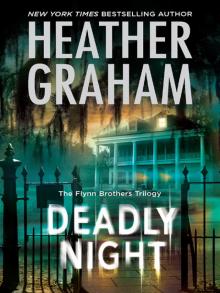 Deadly Night
Deadly Night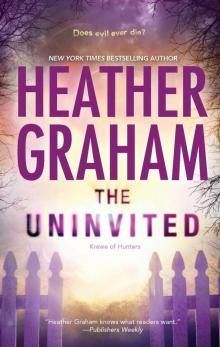 The Uninvited
The Uninvited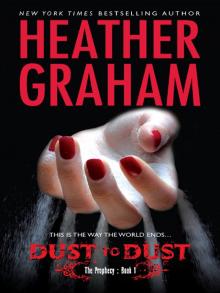 Dust to Dust
Dust to Dust Heart of Evil
Heart of Evil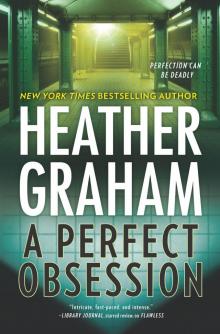 A Perfect Obsession
A Perfect Obsession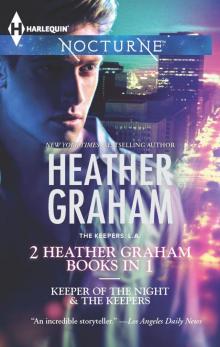 The Keepers
The Keepers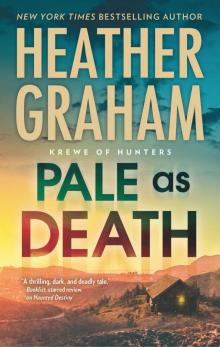 Pale as Death
Pale as Death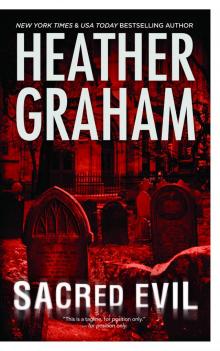 Phantom Evil
Phantom Evil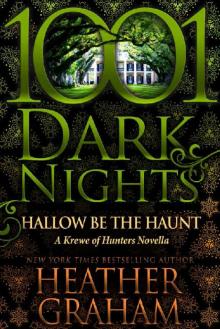 Hallow Be the Haunt
Hallow Be the Haunt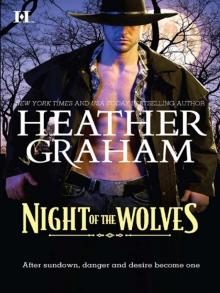 Night of the Wolves
Night of the Wolves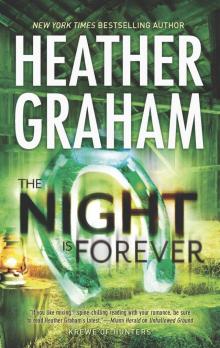 The Night Is Forever
The Night Is Forever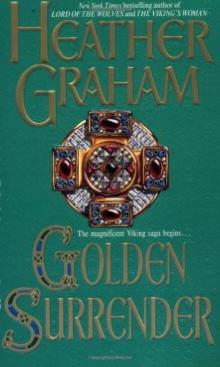 Golden Surrender
Golden Surrender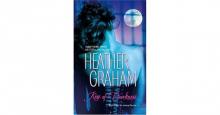 Kiss of Darkness
Kiss of Darkness Beneath a Blood Red Moon
Beneath a Blood Red Moon A Dangerous Game
A Dangerous Game Ghost Shadow
Ghost Shadow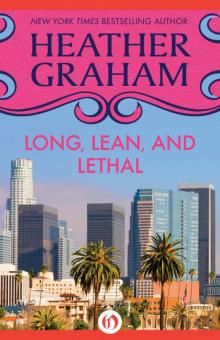 Long, Lean, and Lethal
Long, Lean, and Lethal Fade to Black
Fade to Black The Rising
The Rising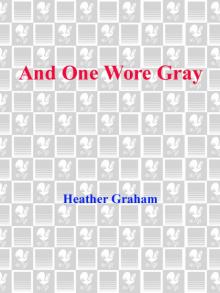 And One Wore Gray
And One Wore Gray Rebel
Rebel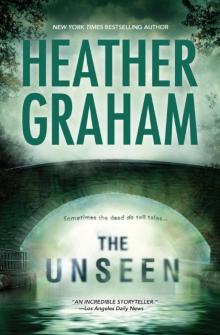 The Unseen
The Unseen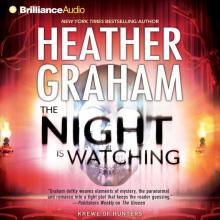 The Night Is Watching
The Night Is Watching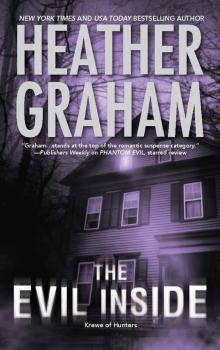 The Evil Inside
The Evil Inside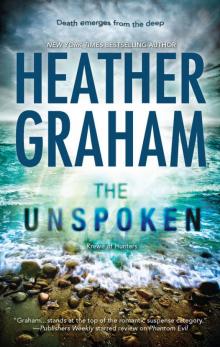 The Unspoken
The Unspoken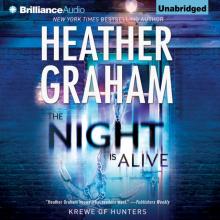 The Night Is Alive
The Night Is Alive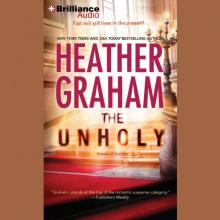 The Unholy
The Unholy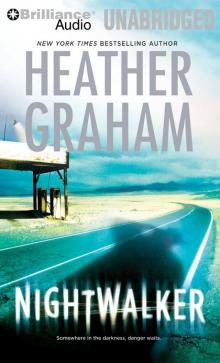 Nightwalker
Nightwalker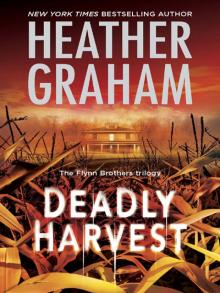 Deadly Harvest
Deadly Harvest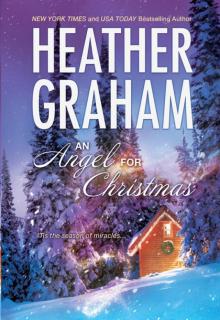 An Angel for Christmas
An Angel for Christmas A Pirate's Pleasure
A Pirate's Pleasure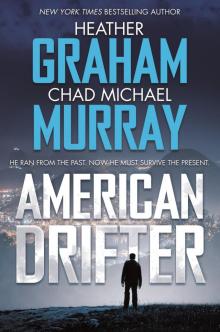 American Drifter
American Drifter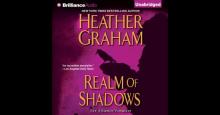 Realm of Shadows
Realm of Shadows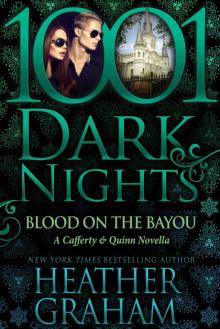 Blood on the Bayou
Blood on the Bayou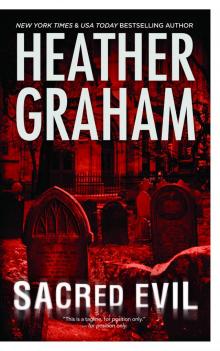 Sacred Evil
Sacred Evil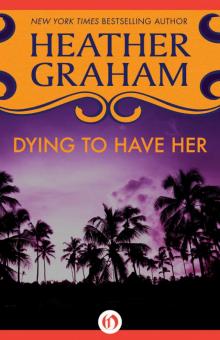 Dying to Have Her
Dying to Have Her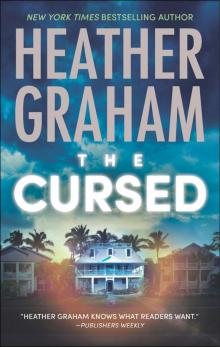 The Cursed
The Cursed Captive
Captive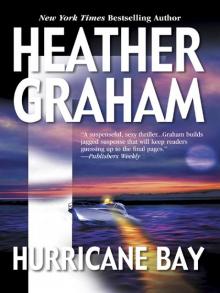 Hurricane Bay
Hurricane Bay Drop Dead Gorgeous
Drop Dead Gorgeous Ghost Memories
Ghost Memories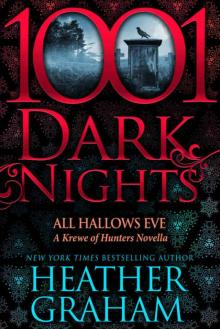 All Hallows Eve
All Hallows Eve Dying Breath
Dying Breath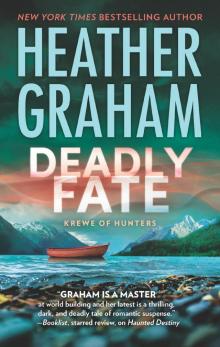 Deadly Fate
Deadly Fate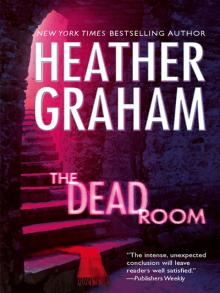 The Dead Room
The Dead Room Lord of the Wolves
Lord of the Wolves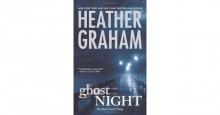 Ghost Night
Ghost Night Ghost Walk
Ghost Walk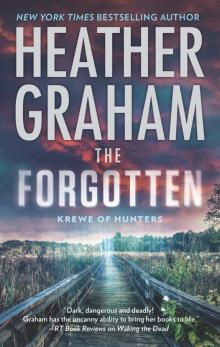 The Forgotten
The Forgotten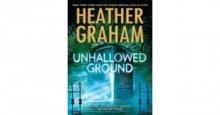 Unhallowed Ground
Unhallowed Ground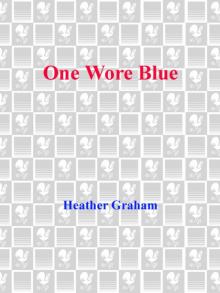 One Wore Blue
One Wore Blue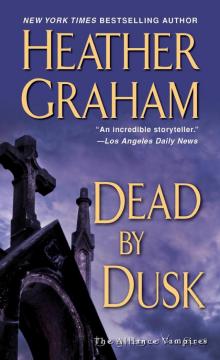 Dead By Dusk
Dead By Dusk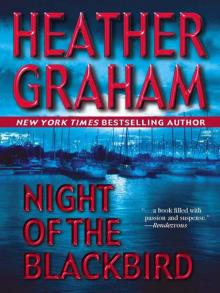 Night of the Blackbird
Night of the Blackbird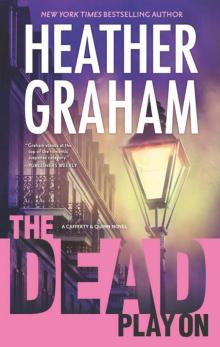 The Dead Play On
The Dead Play On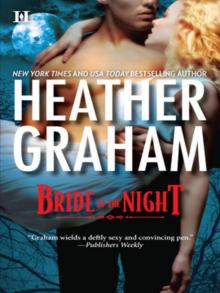 Bride of the Night
Bride of the Night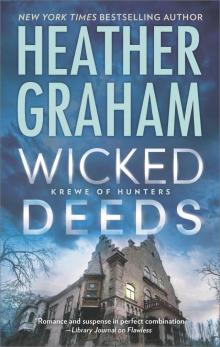 Wicked Deeds
Wicked Deeds The Forbidden
The Forbidden Triumph
Triumph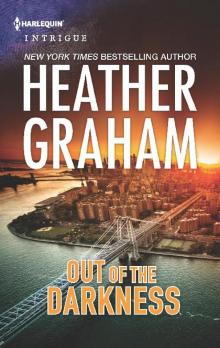 Out of the Darkness
Out of the Darkness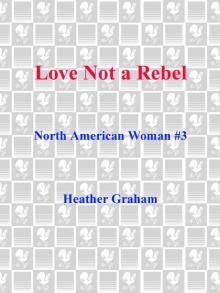 Love Not a Rebel
Love Not a Rebel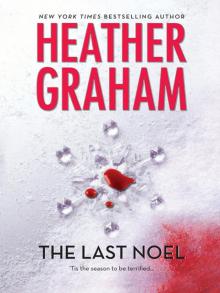 The Last Noel
The Last Noel Tall, Dark, and Deadly
Tall, Dark, and Deadly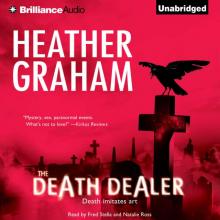 The Death Dealer
The Death Dealer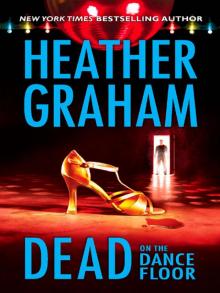 Dead on the Dance Floor
Dead on the Dance Floor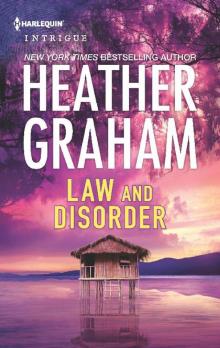 Law and Disorder
Law and Disorder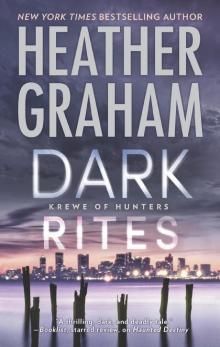 Dark Rites
Dark Rites New Year's Eve
New Year's Eve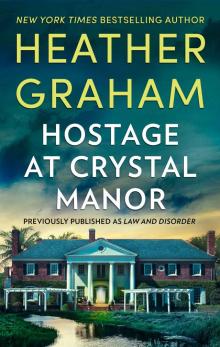 Hostage At Crystal Manor
Hostage At Crystal Manor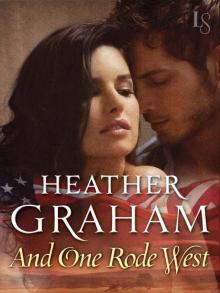 And One Rode West
And One Rode West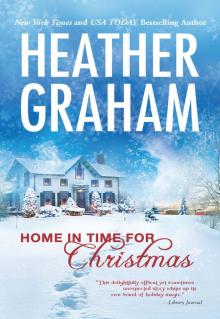 Home in Time for Christmas
Home in Time for Christmas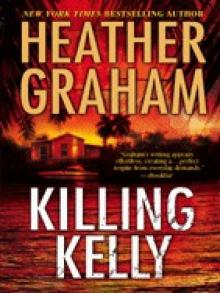 Killing Kelly
Killing Kelly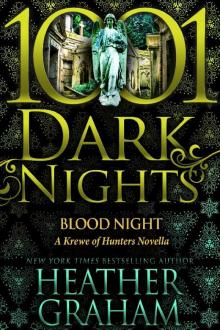 Blood Night
Blood Night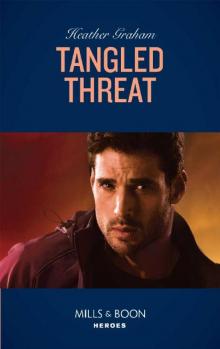 Tangled Threat (Mills & Boon Heroes)
Tangled Threat (Mills & Boon Heroes)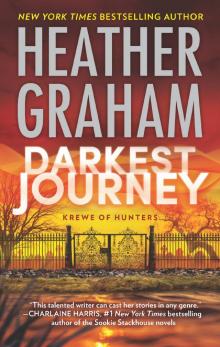 Darkest Journey
Darkest Journey Glory
Glory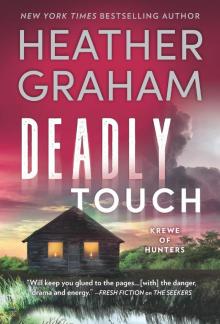 Deadly Touch
Deadly Touch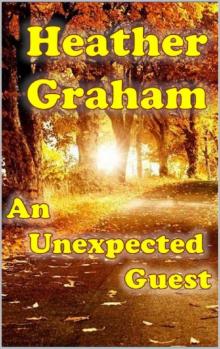 An Unexpected Guest
An Unexpected Guest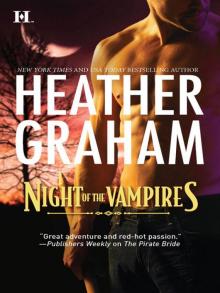 Night of the Vampires
Night of the Vampires Seize the Wind
Seize the Wind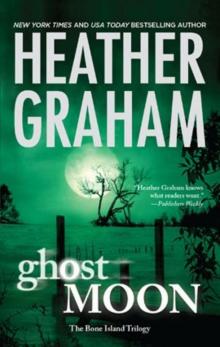 Ghost Moon
Ghost Moon The Vision
The Vision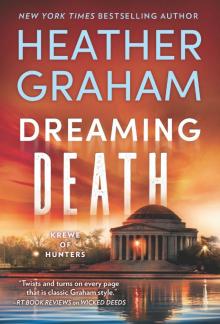 Dreaming Death
Dreaming Death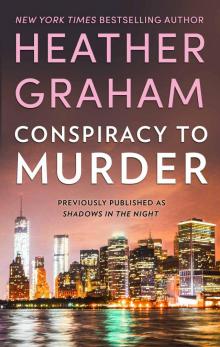 Conspiracy to Murder
Conspiracy to Murder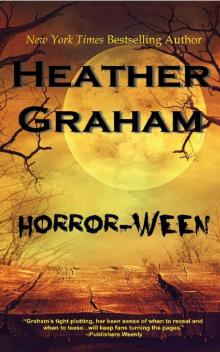 Horror-Ween (Krewe of Hunters)
Horror-Ween (Krewe of Hunters)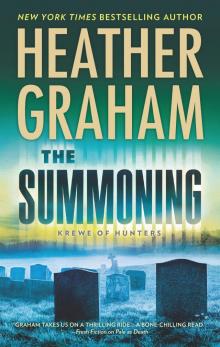 The Summoning
The Summoning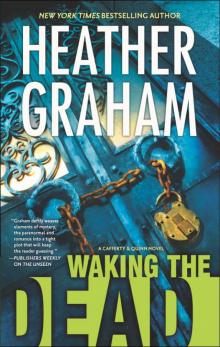 Waking the Dead
Waking the Dead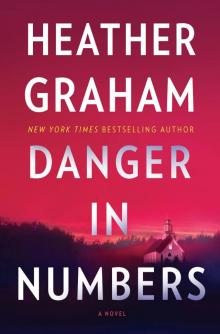 Danger in Numbers
Danger in Numbers The Hidden
The Hidden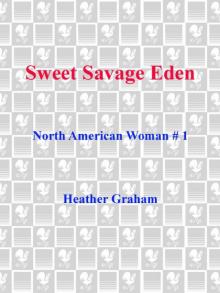 Sweet Savage Eden
Sweet Savage Eden Tangled Threat ; Suspicious
Tangled Threat ; Suspicious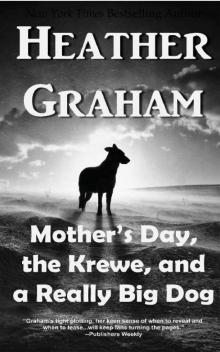 Mother's Day, the Krewe, and a Really Big Dog
Mother's Day, the Krewe, and a Really Big Dog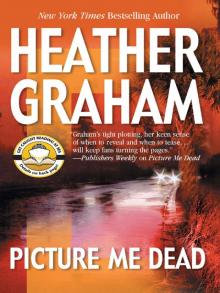 Picture Me Dead
Picture Me Dead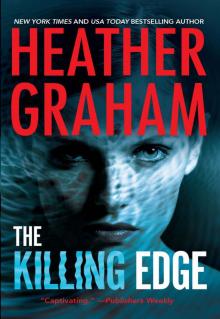 The Killing Edge
The Killing Edge St. Patrick's Day
St. Patrick's Day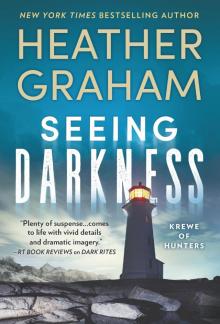 Seeing Darkness
Seeing Darkness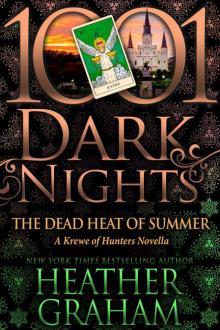 The Dead Heat of Summer: A Krewe of Hunters Novella
The Dead Heat of Summer: A Krewe of Hunters Novella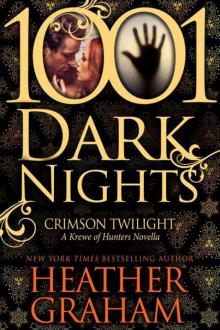 Crimson Twilight
Crimson Twilight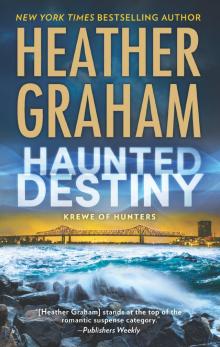 Haunted Destiny
Haunted Destiny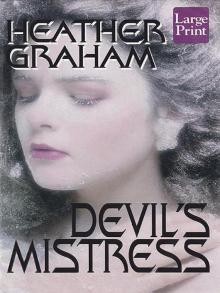 Devil's Mistress
Devil's Mistress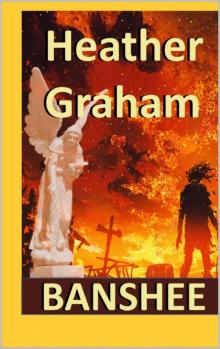 Banshee
Banshee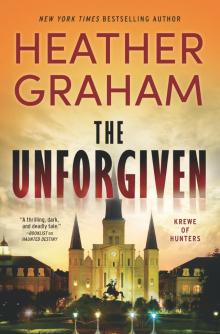 The Unforgiven
The Unforgiven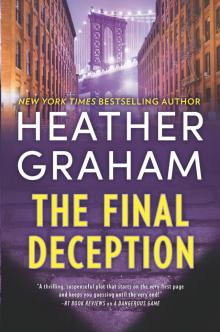 The Final Deception
The Final Deception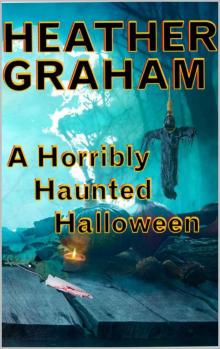 A Horribly Haunted Halloween
A Horribly Haunted Halloween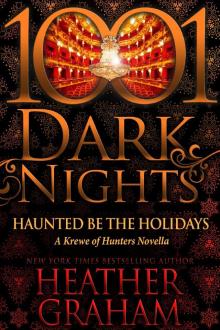 Haunted Be the Holidays
Haunted Be the Holidays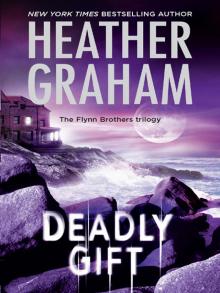 Deadly Gift
Deadly Gift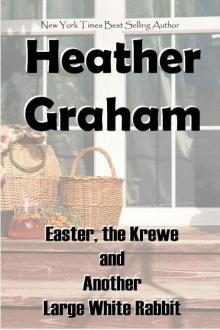 Easter, the Krewe and Another Large White Rabbit
Easter, the Krewe and Another Large White Rabbit Haunted
Haunted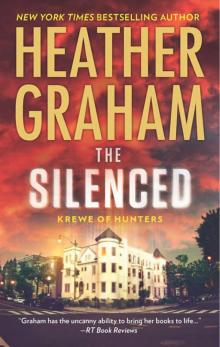 The Silenced
The Silenced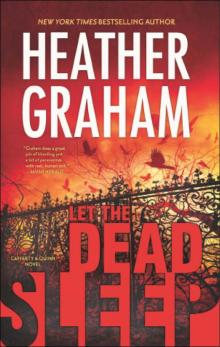 Let the Dead Sleep
Let the Dead Sleep Christmas, the Krewe, and Kenneth
Christmas, the Krewe, and Kenneth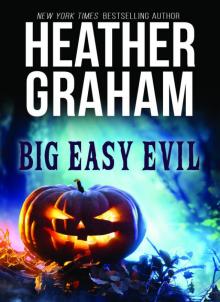 Big Easy Evil
Big Easy Evil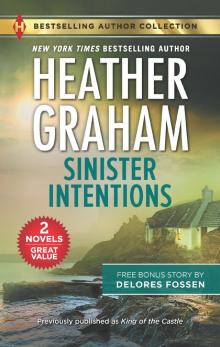 Sinister Intentions & Confiscated Conception
Sinister Intentions & Confiscated Conception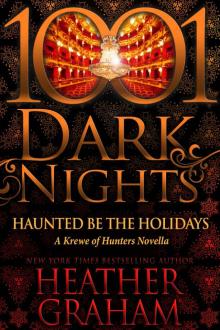 Haunted Be the Holidays: A Krewe of Hunters Novella
Haunted Be the Holidays: A Krewe of Hunters Novella Blood Red
Blood Red A Perilous Eden
A Perilous Eden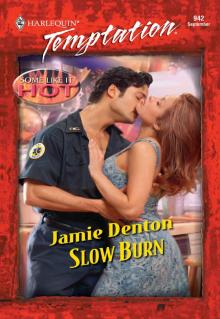 Slow Burn
Slow Burn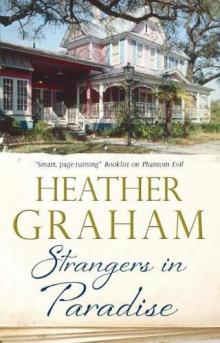 Strangers In Paradise
Strangers In Paradise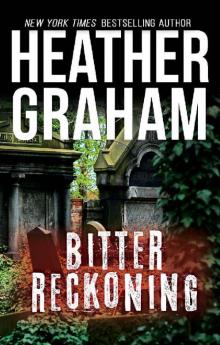 Bitter Reckoning
Bitter Reckoning Krewe of Hunters, Volume 1: Phantom Evil ; Heart of Evil ; Sacred Evil ; The Evil Inside
Krewe of Hunters, Volume 1: Phantom Evil ; Heart of Evil ; Sacred Evil ; The Evil Inside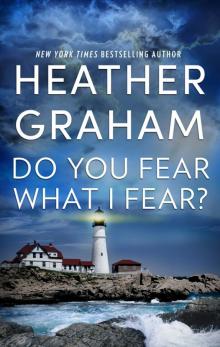 Do You Fear What I Fear?
Do You Fear What I Fear?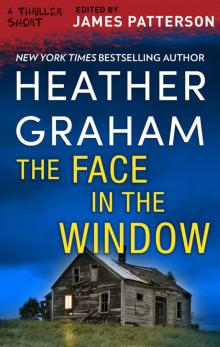 The Face in the Window
The Face in the Window Krewe of Hunters, Volume 3: The Night Is WatchingThe Night Is AliveThe Night Is Forever
Krewe of Hunters, Volume 3: The Night Is WatchingThe Night Is AliveThe Night Is Forever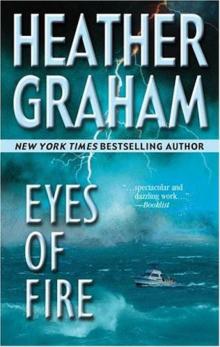 Eyes of Fire
Eyes of Fire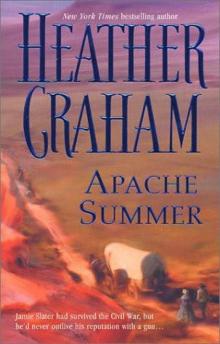 Apache Summer sb-3
Apache Summer sb-3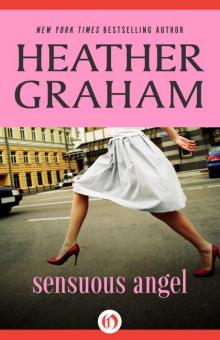 Sensuous Angel
Sensuous Angel In the Dark
In the Dark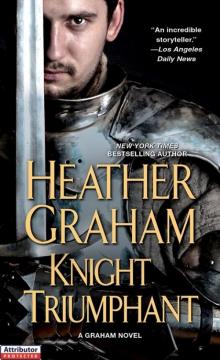 Knight Triumphant
Knight Triumphant Hours to Cherish
Hours to Cherish Tender Deception
Tender Deception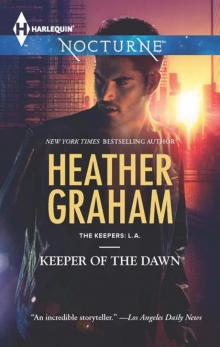 Keeper of the Dawn tkl-4
Keeper of the Dawn tkl-4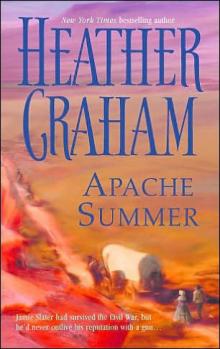 Apache Summer
Apache Summer Between Roc and a Hard Place
Between Roc and a Hard Place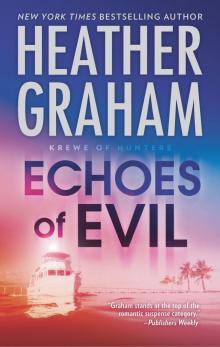 Echoes of Evil
Echoes of Evil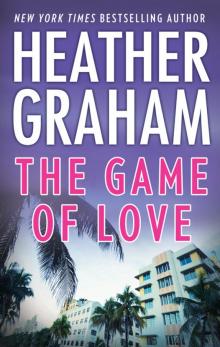 The Game of Love
The Game of Love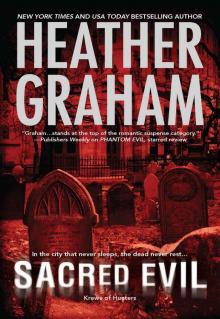 Sacred Evil (Krewe of Hunters)
Sacred Evil (Krewe of Hunters)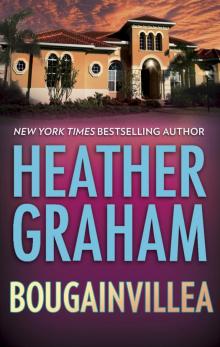 Bougainvillea
Bougainvillea Tender Taming
Tender Taming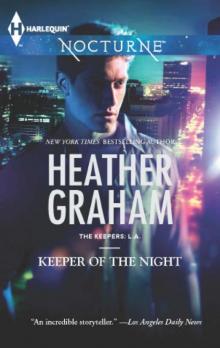 Keeper of the Night (The Keepers: L.A.)
Keeper of the Night (The Keepers: L.A.)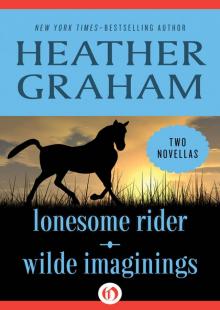 Lonesome Rider and Wilde Imaginings
Lonesome Rider and Wilde Imaginings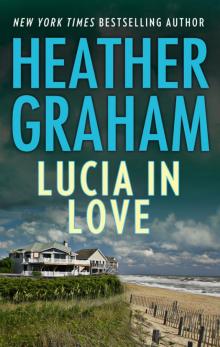 Lucia in Love
Lucia in Love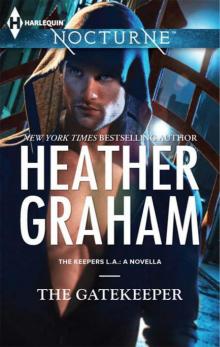 The Gatekeeper
The Gatekeeper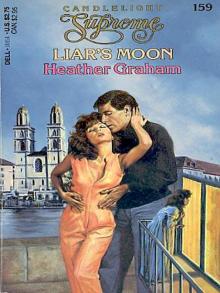 Liar's Moon
Liar's Moon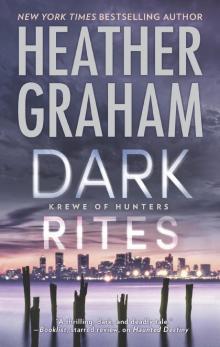 Dark Rites--A Paranormal Romance Novel
Dark Rites--A Paranormal Romance Novel A Season for Love
A Season for Love Krewe of Hunters, Volume 6: Haunted Destiny ; Deadly Fate ; Darkest Journey
Krewe of Hunters, Volume 6: Haunted Destiny ; Deadly Fate ; Darkest Journey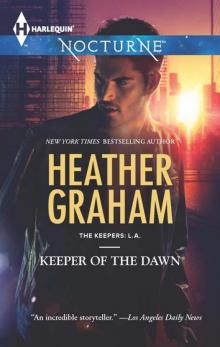 Keeper of the Dawn (The Keepers: L.A.)
Keeper of the Dawn (The Keepers: L.A.)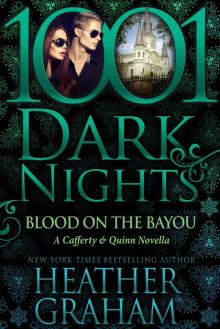 Blood on the Bayou: A Cafferty & Quinn Novella
Blood on the Bayou: A Cafferty & Quinn Novella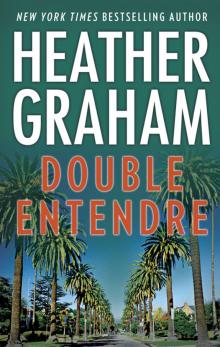 Double Entendre
Double Entendre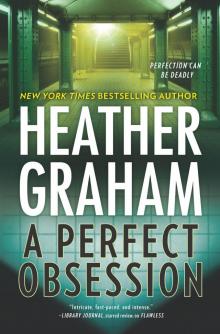 A Perfect Obsession--A Novel of Romantic Suspense
A Perfect Obsession--A Novel of Romantic Suspense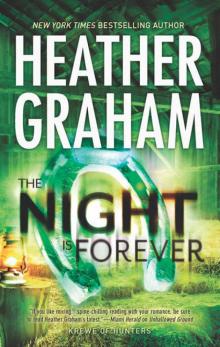 The Night Is Forever koh-11
The Night Is Forever koh-11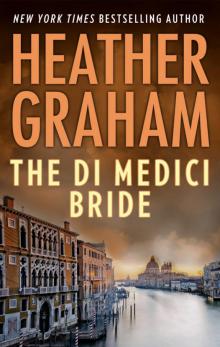 The Di Medici Bride
The Di Medici Bride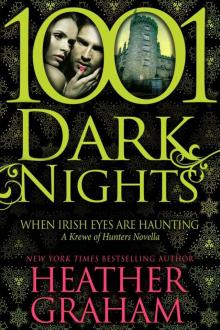 When Irish Eyes Are Haunting: A Krewe of Hunters Novella
When Irish Eyes Are Haunting: A Krewe of Hunters Novella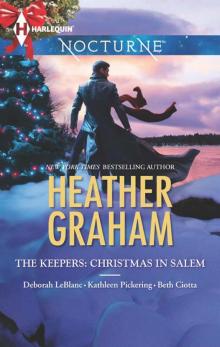 The Keepers: Christmas in Salem: Do You Fear What I Fear?The Fright Before ChristmasUnholy NightStalking in a Winter Wonderland (Harlequin Nocturne)
The Keepers: Christmas in Salem: Do You Fear What I Fear?The Fright Before ChristmasUnholy NightStalking in a Winter Wonderland (Harlequin Nocturne)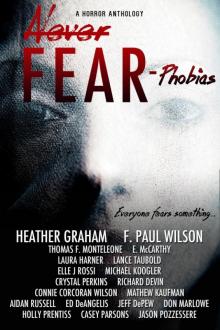 Never Fear
Never Fear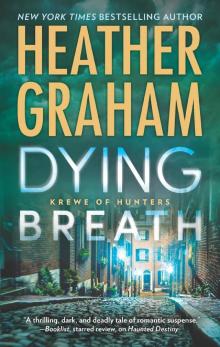 Dying Breath--A Heart-Stopping Novel of Paranormal Romantic Suspense
Dying Breath--A Heart-Stopping Novel of Paranormal Romantic Suspense If Looks Could Kill
If Looks Could Kill This Rough Magic
This Rough Magic Heather Graham's Christmas Treasures
Heather Graham's Christmas Treasures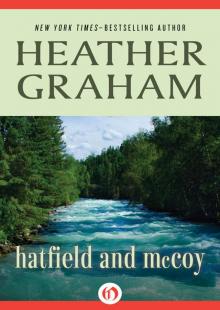 Hatfield and McCoy
Hatfield and McCoy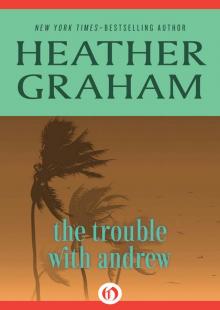 The Trouble with Andrew
The Trouble with Andrew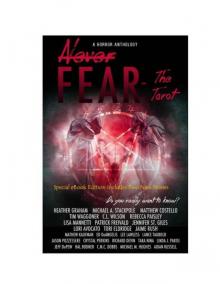 Never Fear - The Tarot: Do You Really Want To Know?
Never Fear - The Tarot: Do You Really Want To Know?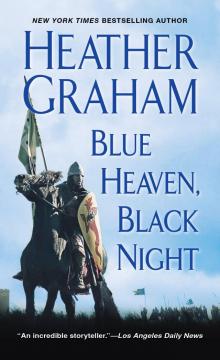 Blue Heaven, Black Night
Blue Heaven, Black Night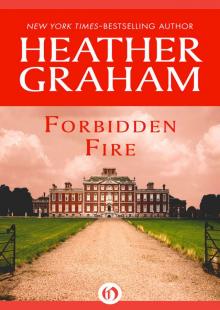 Forbidden Fire
Forbidden Fire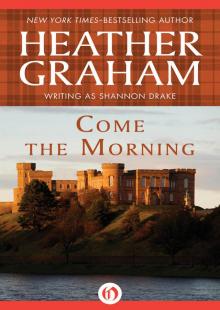 Come the Morning
Come the Morning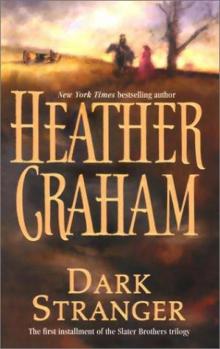 Dark Stranger sb-4
Dark Stranger sb-4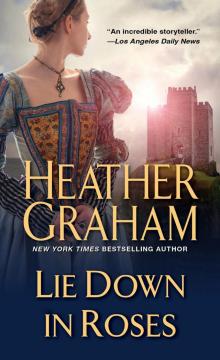 Lie Down in Roses
Lie Down in Roses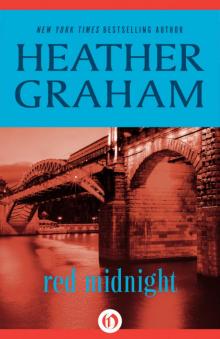 Red Midnight
Red Midnight Krewe of Hunters Series, Volume 5
Krewe of Hunters Series, Volume 5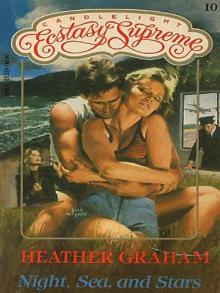 Night, Sea, And Stars
Night, Sea, And Stars Snowfire
Snowfire Quiet Walks the Tiger
Quiet Walks the Tiger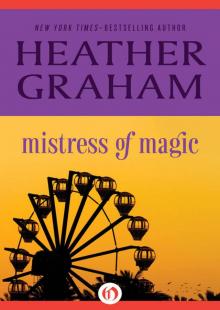 Mistress of Magic
Mistress of Magic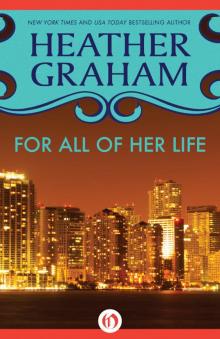 For All of Her Life
For All of Her Life Runaway
Runaway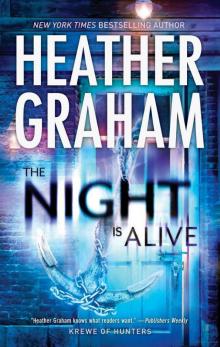 The Night Is Alive koh-10
The Night Is Alive koh-10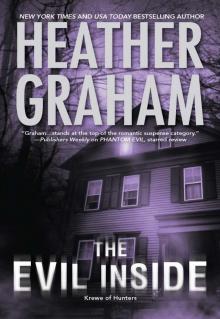 The Evil Inside (Krewe of Hunters)
The Evil Inside (Krewe of Hunters)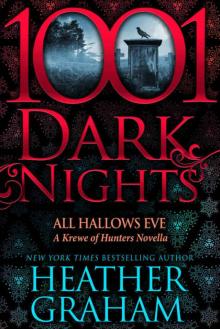 All Hallows Eve: A Krewe of Hunters Novella (1001 Dark Nights)
All Hallows Eve: A Krewe of Hunters Novella (1001 Dark Nights)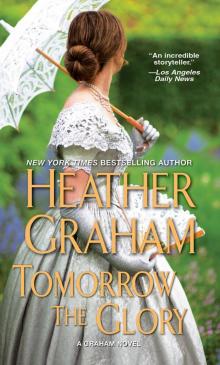 Tomorrow the Glory
Tomorrow the Glory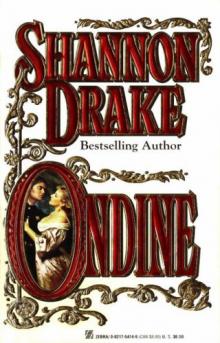 Ondine
Ondine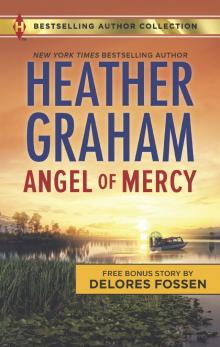 Angel of Mercy & Standoff at Mustang Ridge
Angel of Mercy & Standoff at Mustang Ridge Bride of the Tiger
Bride of the Tiger When Next We Love
When Next We Love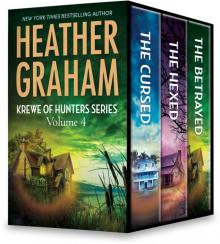 Heather Graham Krewe of Hunters Series, Volume 4
Heather Graham Krewe of Hunters Series, Volume 4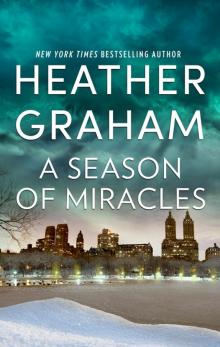 A Season of Miracles
A Season of Miracles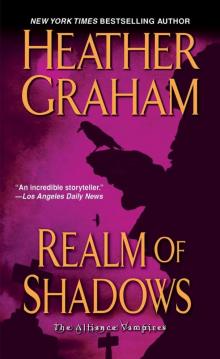 Realm of Shadows (Vampire Alliance)
Realm of Shadows (Vampire Alliance)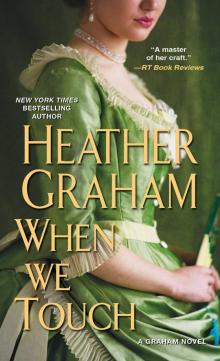 When We Touch
When We Touch Serena's Magic
Serena's Magic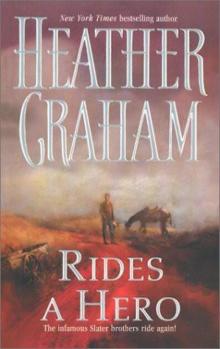 Rides a Hero sb-2
Rides a Hero sb-2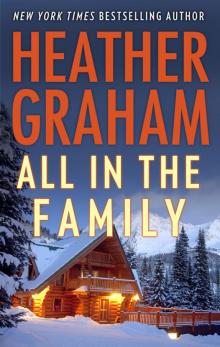 All in the Family
All in the Family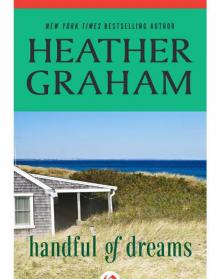 Handful of Dreams
Handful of Dreams A Stranger in the Hamptons
A Stranger in the Hamptons Krewe of Hunters, Volume 2: The Unseen ; The Unholy ; The Unspoken ; The Uninvited
Krewe of Hunters, Volume 2: The Unseen ; The Unholy ; The Unspoken ; The Uninvited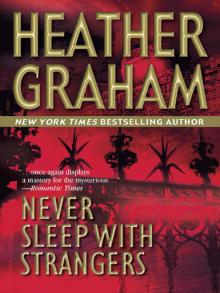 Never Sleep With Strangers
Never Sleep With Strangers Eden's Spell
Eden's Spell A Magical Christmas
A Magical Christmas Forever My Love
Forever My Love King of the Castle
King of the Castle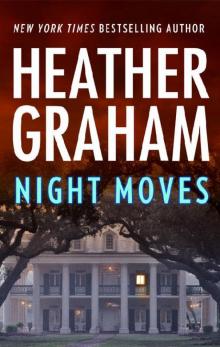 Night Moves (60th Anniversary)
Night Moves (60th Anniversary) The Island
The Island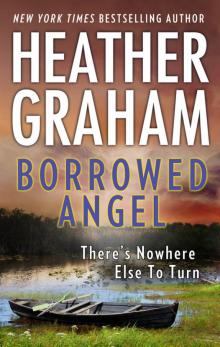 Borrowed Angel
Borrowed Angel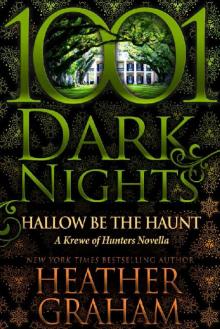 Hallow Be the Haunt: A Krewe of Hunters Novella
Hallow Be the Haunt: A Krewe of Hunters Novella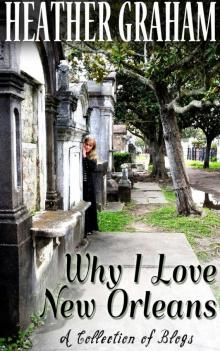 Why I Love New Orleans
Why I Love New Orleans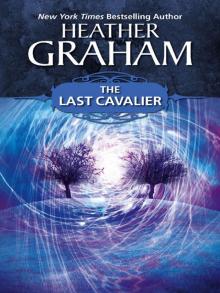 The Last Cavalier
The Last Cavalier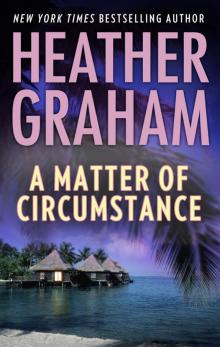 A Matter of Circumstance
A Matter of Circumstance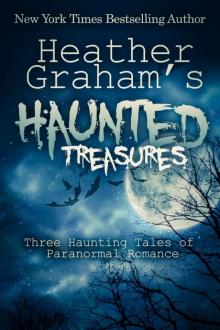 Heather Graham's Haunted Treasures
Heather Graham's Haunted Treasures Tempestuous Eden
Tempestuous Eden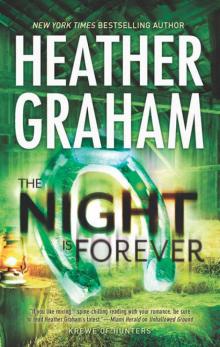 Krewe 11 - The Night Is Forever
Krewe 11 - The Night Is Forever